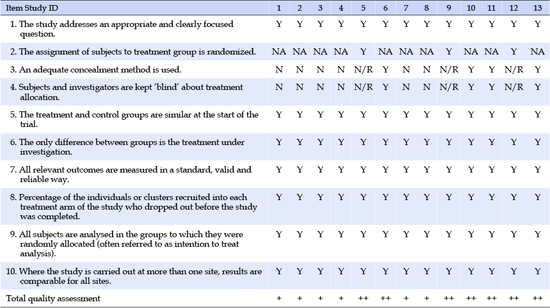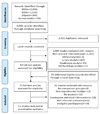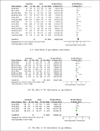1. Cho BH. Development of daily hassles scale and daily hassles coping behaviors scale for elementary school children. J Child Educ. 2006; 15(3):5–21.
3. Tugade MM, Fredrickson BL. Resilient individuals use positive emotions to bounce back from negative emotional experiences. J Pers Soc Psychol. 2004; 86(2):320–333. DOI:
10.1037/0022-3514.86.2.320.

4. Block J, Kremen AM. IQ and ego-resiliency: conceptual and empirical connections and separateness. J Pers Soc Psychol. 1996; 70(2):349–361. DOI:
10.1037/0022-3514.70.2.349.

5. Beutel ME, Glaesmer H, Decker O, Fischbeck S, Braähler E. Life satisfaction, distress, and resiliency across the life span of women. Menopause. 2009; 16(6):1132–1138. DOI:
10.1097/gme.0b013e3181a857f8.

6. Burns RA, Anstey KJ. The Connor-Davidson Resilience Scale (CD-RISC): testing the invariance of a uni-dimensional resilience measure that is independent of positive and negative affect. Pers Individ Dif. 2010; 48(5):527–531. DOI:
10.1016/j.paid.2009.11.026.

7. Lee YS. Theoretical consideration about a resilience concept. Korean J Play Ther. 2013; 16(4):259–284.
8. Bae J, Park HJ, Yang MK. Effects of a Self-discovery Program for Ego resilience, Self-esteem, Stress and Depression in Elementary School Students. J Korean Acad Psychiatr Ment Health Nurs. 2012; 21(3):210–219.

9. Park WJ, Kim MY. Effects of literary therapy intervention on ego resilience and maladaptive behavior in children of broken homes. J Korean Acad Psychiatr Ment Health Nurs. 2011; 20(2):143–156. DOI:
10.12934/jkpmhn.2011.20.2.143.

10. Yoe JY. The effect of music therapy activities on resilience of internet addicted adolescents. Korean J Music Ther. 2012; 14(1):21–40.

11. Hwang SD. Publication baias in meta-analysis: its meaning and analysis. Korean J Human Development. 2016; 23(1):1–19. DOI:
10.15284/kjhd.2016.23.1.1.
12. Leppin AL, Bora PR, Tiburt JC, Gionfriddo MR, ZeballosPalacios C, Dulohery MM, et al. The efficacy of resiliency training programs: a systematic review and meta-analysis of randomized trials. PLoS One. 2014; 9(10):1–15. DOI:
10.1371/journal.pone.0111420.

13. Zenner C, Herrnleben-Kurz S, Walach H. Mindfulness-based interventions in schools-a systematic review and meta-analysis. Front Psychol. 2014; 5(603):1–20. DOI:
10.3389/fpsyg.2014.00603.

14. Hu T, Zhang D, Wang J. A meta-analysis of the trait resilience and mental health. Pers Individ Dif. 2015; 76:18–27. DOI:
10.1016/j.paid.2014.11.039.

15. Connor KM, Davidson JR. Development of a new resilience scale: the Connor-Davidson Resilience Scale (CD-RISC). Depress Anxiety. 2003; 18(2):76–82. DOI:
10.1002/da.10113.

16. Harvey J, Delfabbro PH. Psychological resilience in disadvantaged youth: a critical overview. Australian Psychologist. 2004; 39(1):3–13. DOI:
10.1080/00050060410001660281.

17. Dray J, Bowman J, Wolfenden L, Campbell E, Freund M, Hodder R, et al. Systematic review of universal resilience interventions targeting child and adolescent mental health in the school setting: review protocol. Syst Rev. 2015; 4:186–194. DOI:
10.1186/s13643-015-0172-6.

19. DerSimonian R, Laird N. Meta-analysis in clinical trials. Control Clin Trials. 1986; 7(3):177–188.

21. Higgins JP, Thompson SG, Deeks JJ, Altman DG. Measuring inconsistency in meta-analyses. BMJ. 2003; 327(7414):557–560. DOI:
10.1136/327.7414.557.

22. Duval S, Tweedie R. A nonparametric "trim and fill" method of accounting for publication bias in meta-analysis. J Am Stat Assoc. 2000; 95(449):89–98. DOI:
10.1080/01621459.2000.10473905.

23. Egger M, Davey Smith G, Schneider M, Minder C. Bias in meta-analysis detected by a simple, graphical test. BMJ. 1997; 315(7109):629–634.

24. Windle G, Bennett KM, Noyes J. A methodological review of resilience measurement scales. Health Qual Life Outcomes. 2011; 9(8):1–18. DOI:
10.1186/1477-7525-9-8.

25. Kim KK, Im SI, Park IS. Meta-analysis of self-esteem improvement program. J Educational Research. 2015; 13(1):21–42.






 PDF
PDF ePub
ePub Citation
Citation Print
Print







 XML Download
XML Download